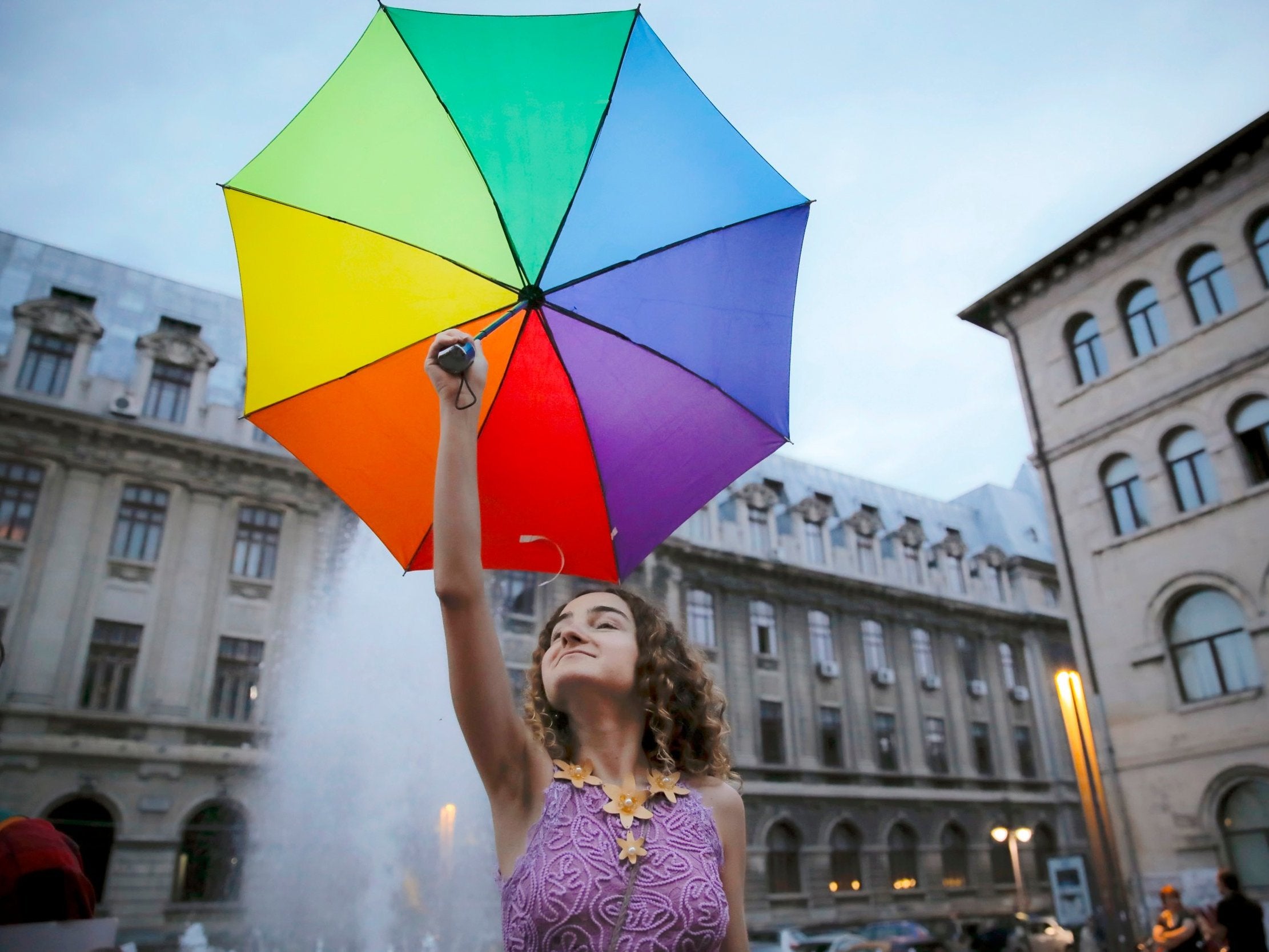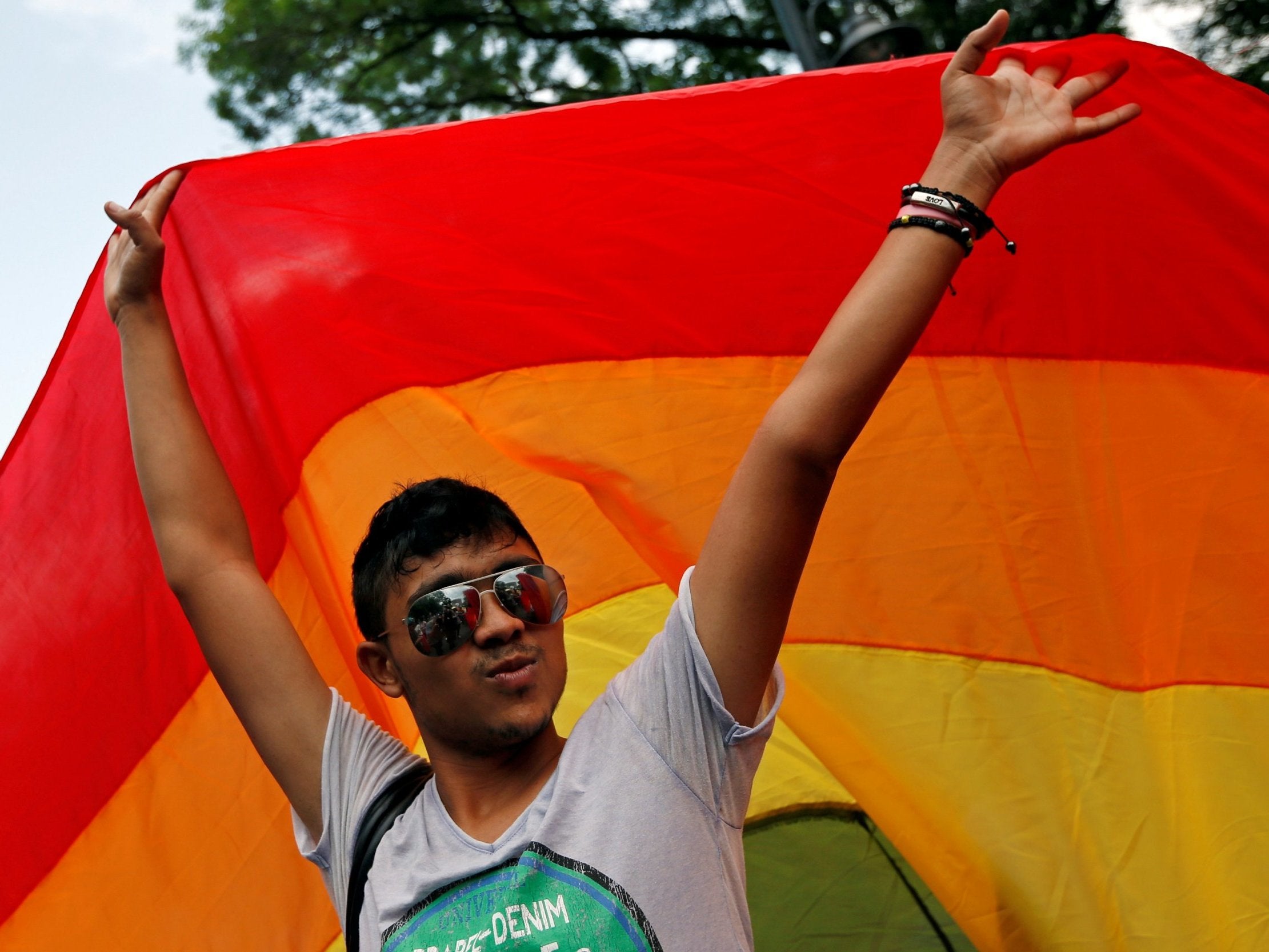Romania to hold vote on whether to permanently ban gay marriage
'Loving families are threatened by this proposal'

Your support helps us to tell the story
From reproductive rights to climate change to Big Tech, The Independent is on the ground when the story is developing. Whether it's investigating the financials of Elon Musk's pro-Trump PAC or producing our latest documentary, 'The A Word', which shines a light on the American women fighting for reproductive rights, we know how important it is to parse out the facts from the messaging.
At such a critical moment in US history, we need reporters on the ground. Your donation allows us to keep sending journalists to speak to both sides of the story.
The Independent is trusted by Americans across the entire political spectrum. And unlike many other quality news outlets, we choose not to lock Americans out of our reporting and analysis with paywalls. We believe quality journalism should be available to everyone, paid for by those who can afford it.
Your support makes all the difference.Romania will hold a referendum on changes to the constitution that could effectively permanently ban gay marriage.
The country's top court approved a public vote on an amendment that would explicitly state that marriage is a union between a man and a woman.
Campaigners warned the move, which would remove the reference to "spouses" and replace it with a specific reference to one man and one woman, was discriminatory and "out of step with reality".
It followed a petition signed by three million Romanians in support of a change in the constitution.
Last week the senate approved the referendum by 107 votes. The Constitutional Court's 7-2 decision was the final hurdle and the vote will go ahead on 7 October.
Romania does not currently recognise same-sex marriage or offer legal protection to same-sex couples.
But campaigners warned that a change in the constitution would cement the inequality and permanently end hopes of a future change in the law.
Katrin Hugendubel, European advocacy director at the International Lesbian, Gay, Bisexual, Trans and Intersex Association (ILGA), said: "This referendum is essentially asking people to approve discriminating against their neighbours, colleagues, friends and family members.
"Rainbow families, diverse family groups, loving families living in Romania right now are all threatened by this proposal."
Romania is 35th in the Rainbow Europe ranking on law and policy. While LGBT+ people in the country enjoy equal rights in some areas, including military service, housing and age of sexual consent, they are banned from giving blood or adopting as a couple.
The socially-conservative country has few LGBT-friendly politicians and the Orthodox Church enjoys widespread influence.
But in July, LGBT+ couples won a rare victory after Romania’s constitutional court ruled that residency rights must be given to the same-sex spouses of European Union citizens.
Several LGBT+ campaign groups lobbied the constitutional court before its latest verdict on the gay marriage vote, with Amnesty International warning the change “could result in making it impossible to protect same-sex unions in the future”.
Barbora Černušáková, Amnesty International’s researcher on Romania, said it would be a “backward step”.
The definition of ‘family’ put forward by the supporters of this referendum is frankly inaccurate; it only captures a very limited fraction of what family means to people in 2018
Arpi Avetisyan, ILGA Europe's litigation officer, added: “Romania has a responsibility to protect all its citizens – straight and LGBTI.
"The definition of ‘family’ put forward by the supporters of this referendum is frankly inaccurate; it only captures a very limited fraction of what family means to people in 2018.
"And it is also very out-of-step with reality and with the diversity of families being recognised by international human rights bodies and European courts."

Supporters of a constitutional amendment have claimed it would protect Romania’s “traditional family”.
The debate mirrors efforts by conservative groups in Russia, backed by President Vladimir Putin, to limit LGBT+ rights under so-called gay propaganda rules agreed in 2013.
Join our commenting forum
Join thought-provoking conversations, follow other Independent readers and see their replies
Comments